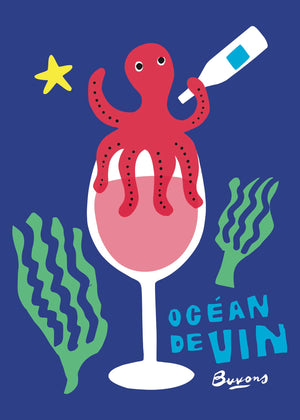
Grapes: Cab Franc
Region: Loire, France
Vintage: 2023
Viticulture: Organic
Soils: Clay + Limestone + Loam
Yeasts: Native
Vinification: Whole cluster, 3 week maceration, 48 hr slow press
Aging: 33 months in used barrels
Fining and Filtering: none
Sulfur: Minimal added at bottling
Notes from the Importer: Passionate about food and its origins, Jean left his native Brittany to study cuisine in Toulouse, eventually finding himself at the domain of Olivier Lemasson in the Loire for harvest of 2009. It was here that he experienced firsthand the passion and conviviality embodied by Olivier and his circle, and was drawn into the world of winemaking. Jean strengthened his knowledge and experience working seasonal jobs with Olivier and other winemakers in the Loire-et-Cher and region surrounding Tours, including Thierry Puzelet, Hervé Villemande, Noëlla Morentin, Jérôme Lenoir and Pierre and Catherine Breton.
He made his first solo vintage in 2015, gleaning grapes from abandoned vines which he vinified in the back of a courtyard. In 2016, he acquired a small plot en fermage, the harvest of which was completely lost, primarily to mildew. Jean eventually moved to the notorious Rue des Belles Caves in Berrie in 2017, where, with the support of friends including François Saint-Lô, he persevered in his winemaking journey, supplementing his own harvests with purchased grapes from colleagues.
Jean currently has 1.6 hectares of vines under the domaine, including Chenin, Cabernet Franc and numerous hybrids. All plots were formerly abandoned and thus have been completely untreated for up to a decade (he uses no treatment on the vines whatsoever). He was joined by Eléa Verbruggen, founder of La Petite Ferme de Gargantua and specialist in permaculture and soil care, in 2021, and together they have introduced techniques of herb crushing and composting in order to enrich the top surface of the soil.
From the vines to the cellar, everything is done by hand. Grapes are picked ripe and pressed with a small wooden basket press, slowly—often extremely slowly—over the course of multiple days. The juice is then transferred to old barrels using primarily buckets (and the help of many friends). The cave itself dates back to approximately the 15th century, when it was dug out as a stone quarry to build the city of Angers. A number of meters below ground, its perpetual moisture and cool temperatures favor long fermentations and complex élevages.




